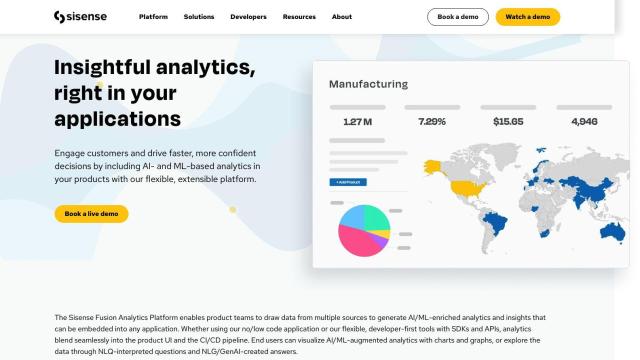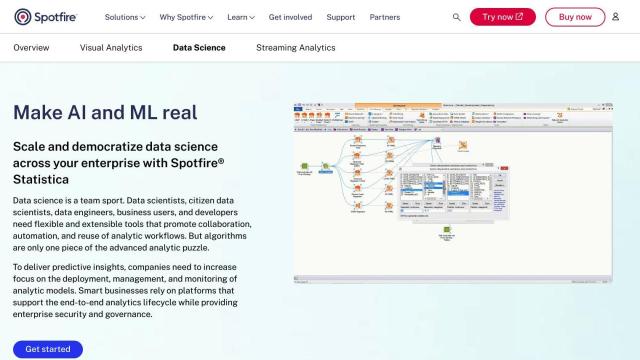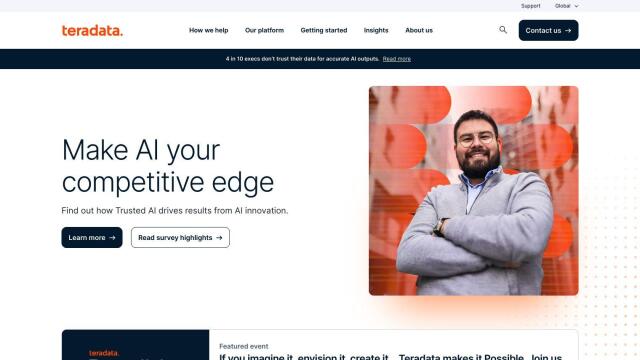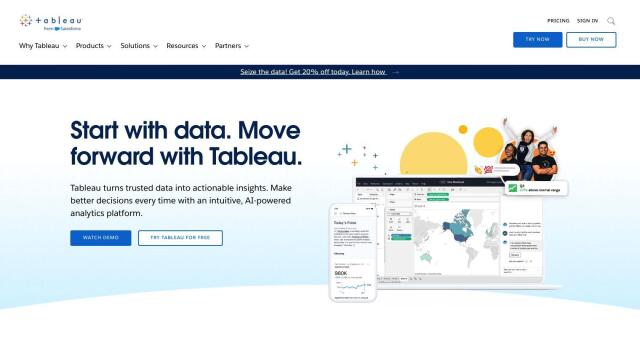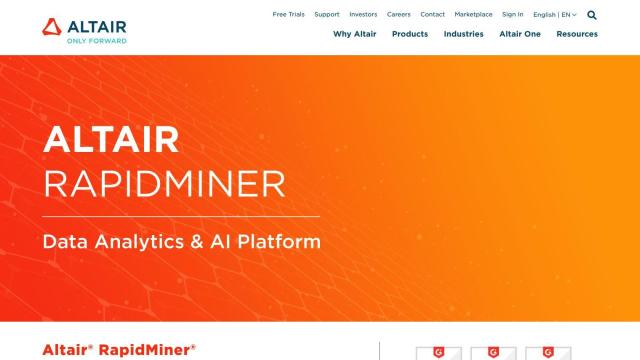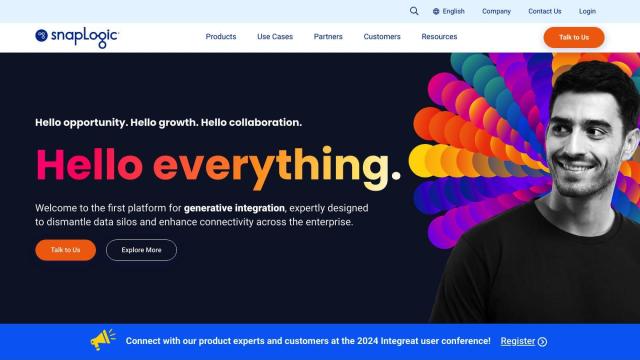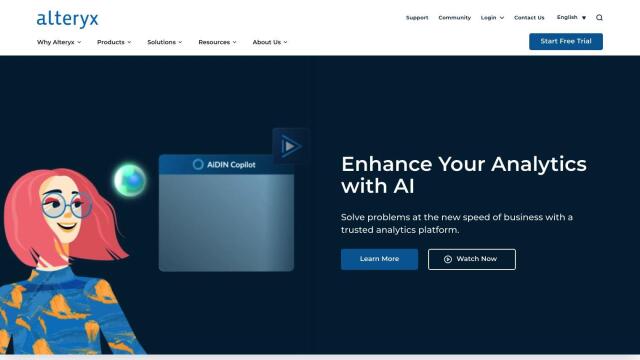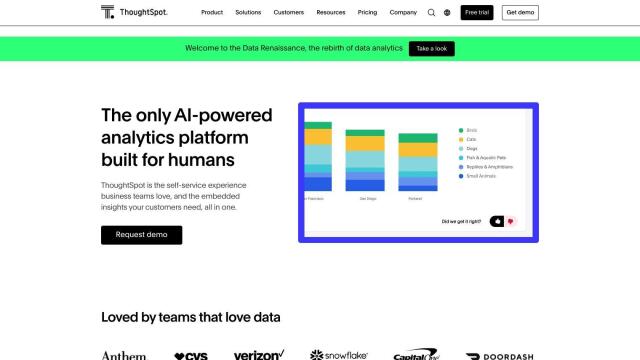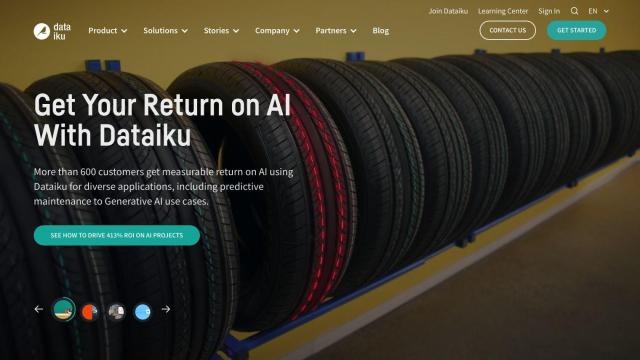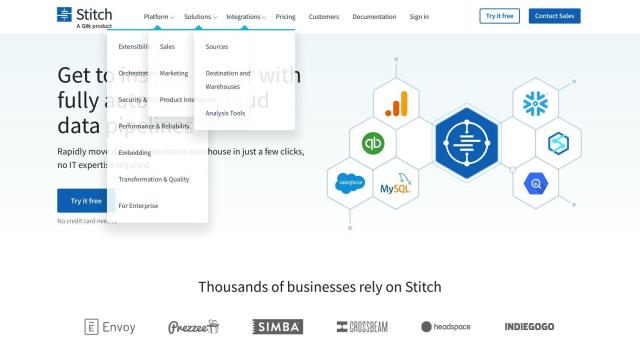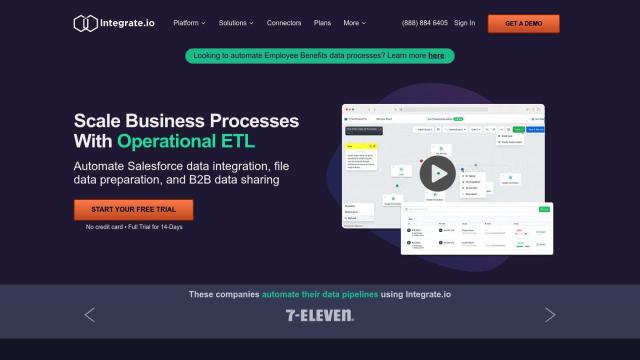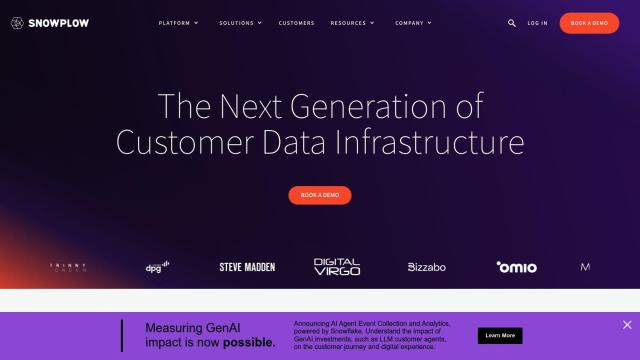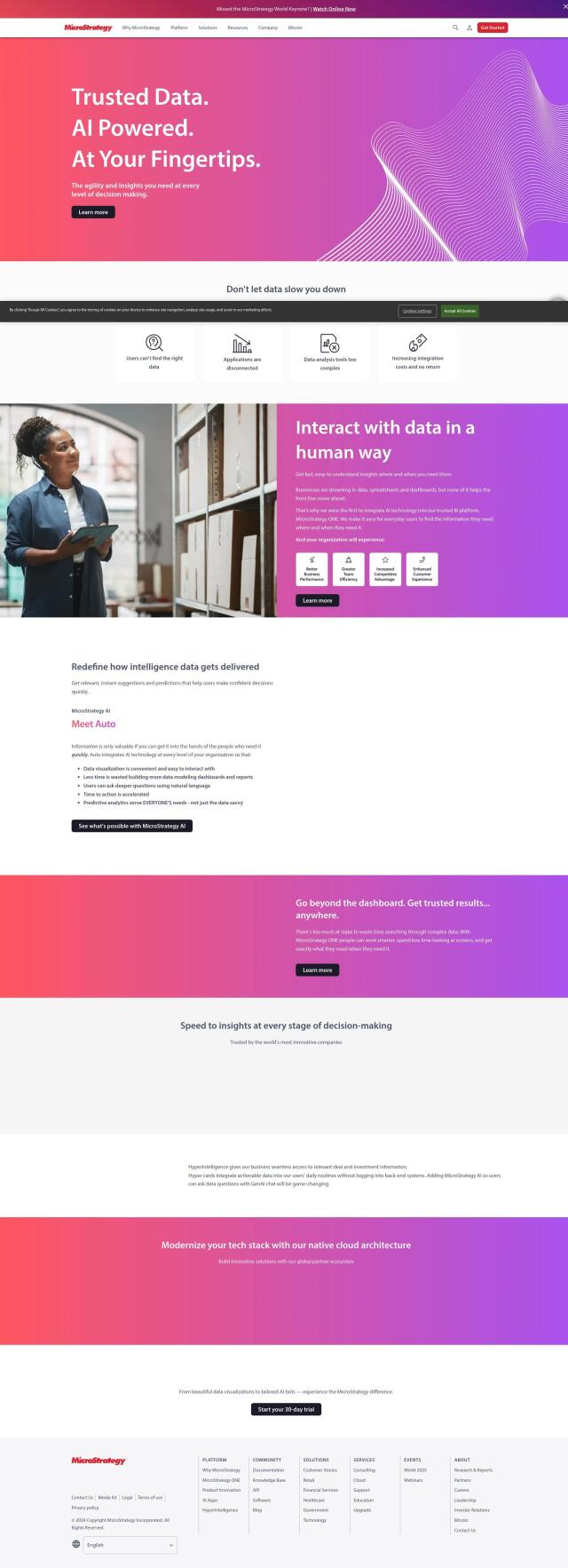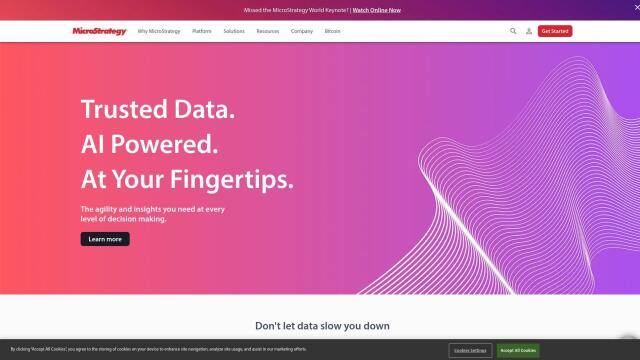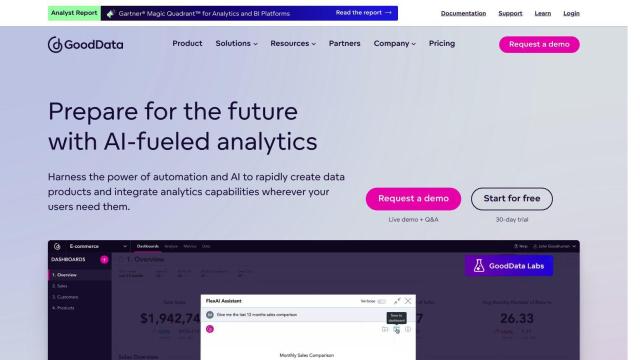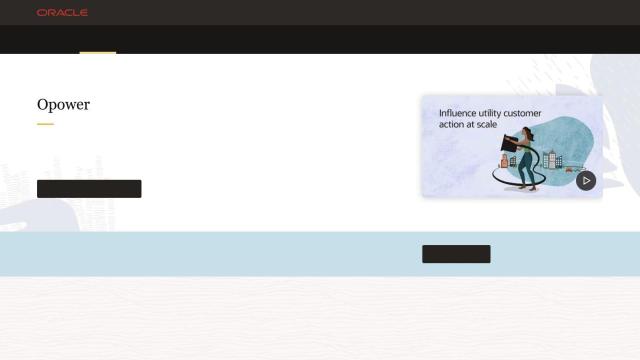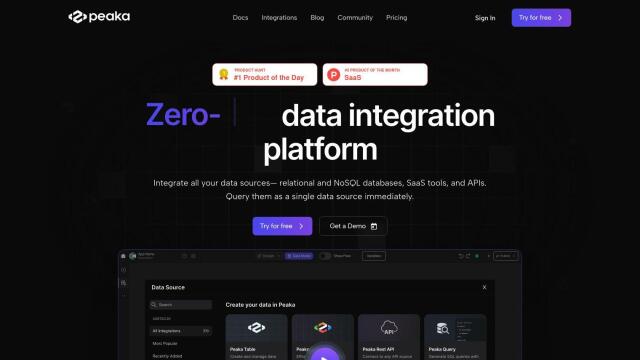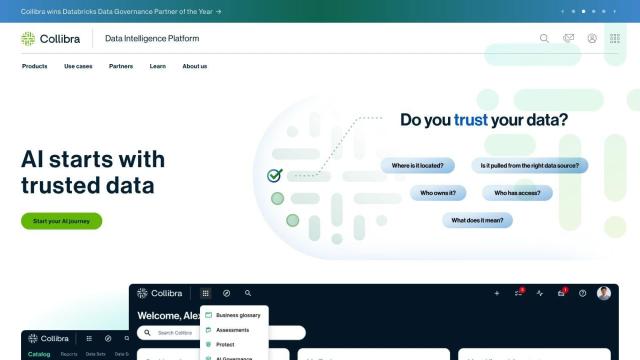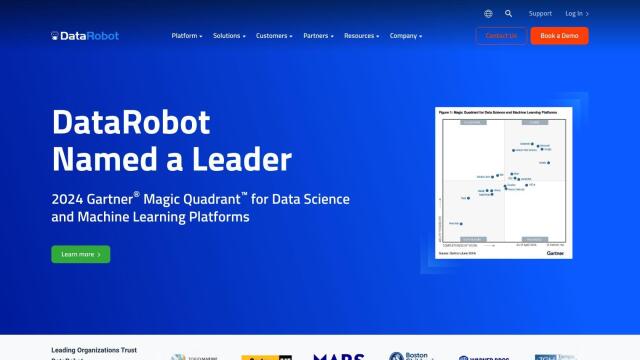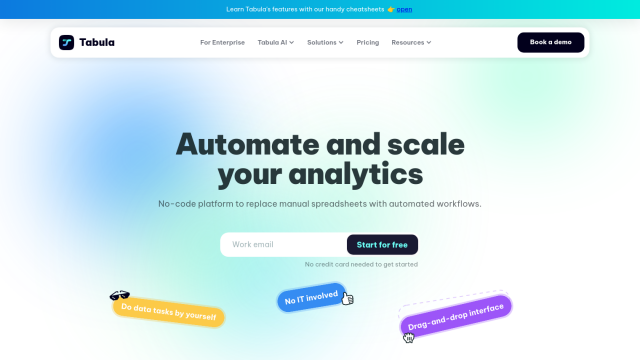Question: I'm looking for a platform that can integrate data from multiple sources and provide advanced analytics capabilities.

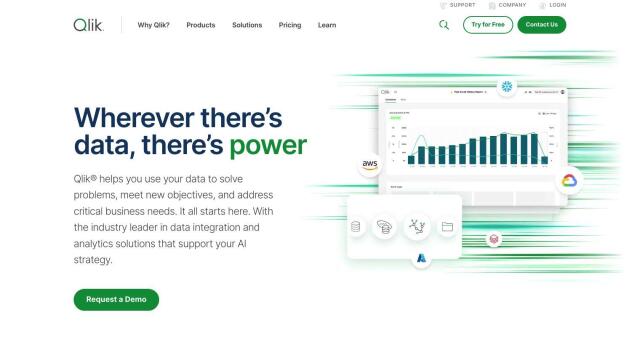
Qlik
If you're looking for a platform that can tie together data from many sources and offer more-advanced analytics, Qlik is a full-featured suite worth a look. It offers end-to-end data integration, data quality and advanced analytics abilities. With a deep data fabric and a wide range of connectors, Qlik lets you tap into hundreds of data sources. Its main abilities include data streaming, application and API integration, data lake creation and SAP support. It also offers embedded analytics, visualizations and AI-powered features like AutoML and Qlik Staige for no-code predictive AI development.

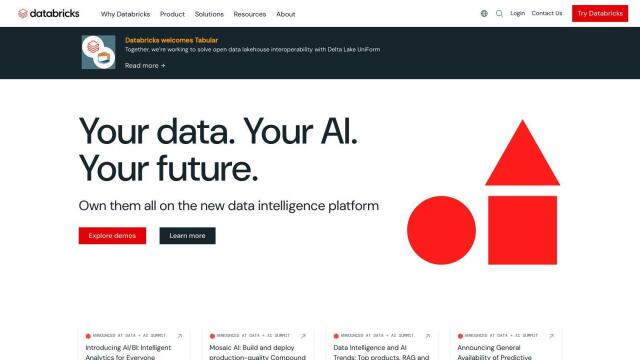
Databricks
Another strong contender is Databricks, which with the addition of generative AI, now brings together data, analytics and governance. It supports a wide range of tools and integrations, including ETL, data ingestion, business intelligence and AI. Databricks is built on lakehouse architecture, an open, scalable and unified approach to data management. It's designed to be useful to a variety of people, with resources like support, training and community engagement, and a free trial for new customers.

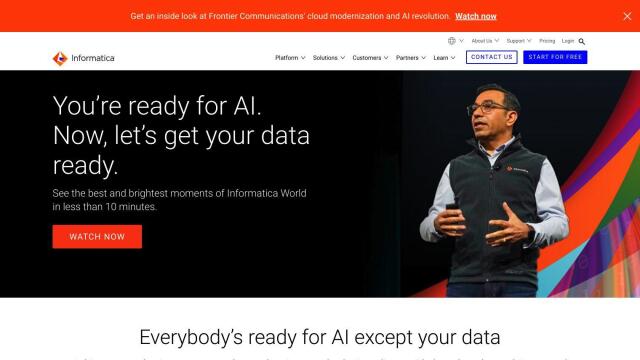
Informatica
For a cloud-native option, Informatica connects, manages and unifies data across multi-cloud and hybrid environments. It uses its CLAIRE AI engine to automate data integration work and offers features like modern data architecture, secure data management and flexible pricing. Informatica has offerings for a variety of industries and roles, so it's a good choice for companies trying to modernize their data management.

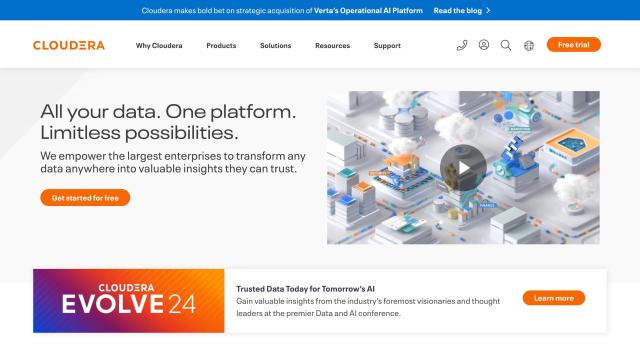
Cloudera
Cloudera offers a hybrid data platform for ingesting, processing and analyzing data in the cloud and on-premises. It can combine enormous amounts of data from many sources into a single trusted system for insights and AI model training. Cloudera supports real-time insights, automated data pipelines, big data analytics and scalable application deployment, and is used in industries like financial services, manufacturing and health care.

